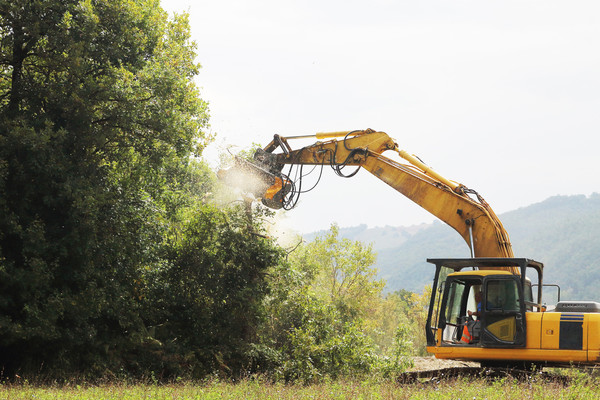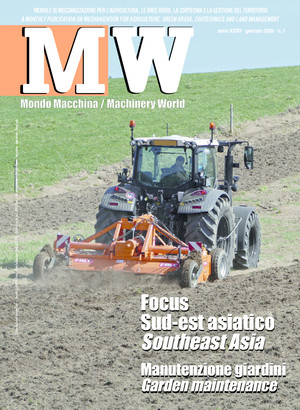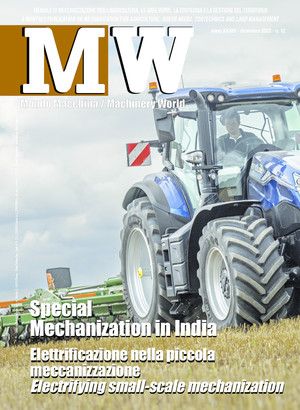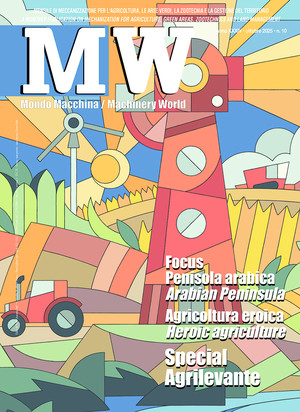
The ITABIA initiatives championing best practices
Sustainability and the circular economy can provide a response to the challenges posed by the climate emergency and the need to reduce the environmental impact of human activities. These are the central themes of ITABIA’s initiatives during the Agrilevante exhibition in Bari
The global agricultural economy faces today multiple challenges related to the climate crisis, the impact of human activity on the environment, the preservation of natural resources, and the optimization of production inputs. One possible answer to these challenges lies in the circular economy, which is rooted in sustainability and based on three core principles: reduce, reuse, regenerate. The goal is not only economic, but also ecological and social. In agriculture, this translates into an approach that promotes crop diversification, the recovery of organic waste, composting, the rational use of water resources, and a return to agro-ecological practices. The circular economy recognizes the value of short supply chains, local consumption, and territorial resilience in a context in which the farmer is not only a producer, but also a custodian of the landscape and an actor in the ecological transition. In an era marked by climate crisis, resource scarcity, and geopolitical instability, choosing which agricultural model to support is no longer just a theoretical question, but a concrete responsibility. It is a responsibility in which technological innovation plays an extraordinarily important role in increasing yields and improving product healthiness, while minimizing environmental impact and resource consumption. The Agrilevante exhibition fits precisely into this groove, with its high-profile exhibits, conferences, and technical seminars, which have always promoted innovation in agricultural practices with a view to complete sustainability.
The initiatives that ITABIA, the Italian Biomass Association, is planning for the Bari event are also part of the sustainability agenda. Inside the fair district, ITABIA will take care of theBioenergy Area” (located near the Italo-Orientale entrance), a demonstration space where, throughout the entire event, some of the most innovative machinery and equipment dedicated to the processing of woody biomass of agricultural and forestry origin will be put into operation. The technologies on display will be activated throughout the day by specialized operators from the exhibiting companies themselves, allowing visitors to experience the technical features and functionality of the mechanical equipment firsthand. Another element of notable interest will be the technical visit organized at the plant that produces biomethane from agricultural substrates. This facility, built in 2022 by the Bel Agri company, is located in the province of Foggia and has been developed to produce approximately 500 Smc/h (standard cubic meters per hour) of biomethane, defined as "advanced" because it is obtained from a diet composed primarily of olive milling waste, poultry waste, and second-harvest crops. The facility represents an extremely virtuous model in the Apulian setting since – in addition to the energy recovery of waste (renewable biomass) – all the energy and thermal requirements of the entire biomethane production process are self-produced using a portion of the biogas obtained from anaerobic digestion. It is therefore a concrete example of a circular economy with positive impacts on the environment since it eliminates the consumption of over 3,800 tons of oil and the consequent emission into the atmosphere of 11,500 tons of CO2 of fossil origin.
ITABIA has also organized several in-depth discussions on best practices in the broader bioeconomy arena in Apulia and nationwide. Of special note among these is a workshop dedicated to the development of primary sector by-products as resources with multiple applications widely available in Apulia. A particular focus will be on the production of biochar, a material used both as an agricultural soil improver and as a potential green component in the steel industry's production cycle. To this end, the objectives and results of four projects financed with public resources will be presented: RuralBioUp, DeliSoil, BioCoDe and Icarus centered on carbonfarming and the Emission Trading System (ETS). The initiative, organized by ITABIA in collaboration with ENEA, CINSA (Interuniversity Consortium for Environmental Sciences - University of Parma), and STAR*Facility Centre (DAFNE – University of Foggia), aims to involve research institutions, businesses, and even students from the Apulia region to share knowledge and establish effective synergies for the region's green development. Another notable event will be the presentation of seven short videos, all shot as part of EU projects funded by Horizon 2020, to publicize best practices in the circular bioeconomy sector. The videos present a series of interviews given to ITABIA by entrepreneurs, farmers and researchers committed to promoting sustainable development in rural areas and combating climate change.








